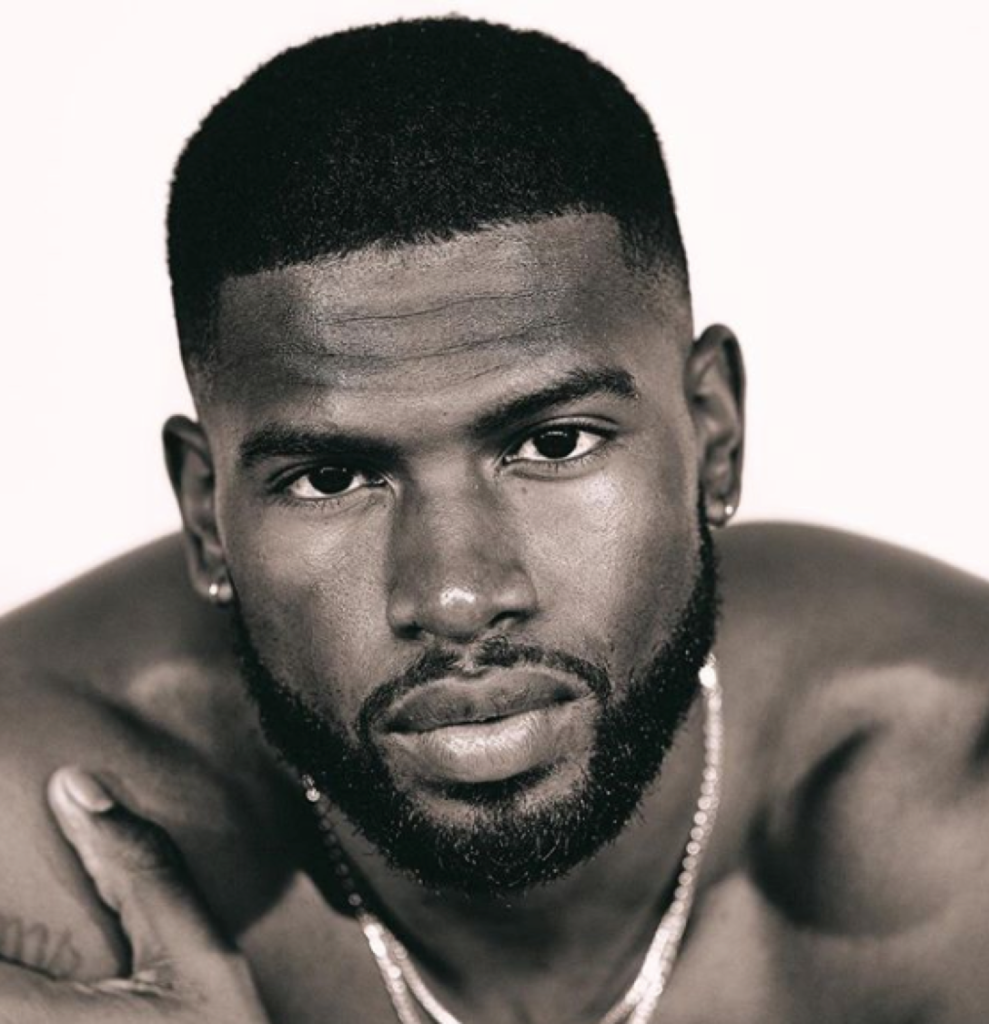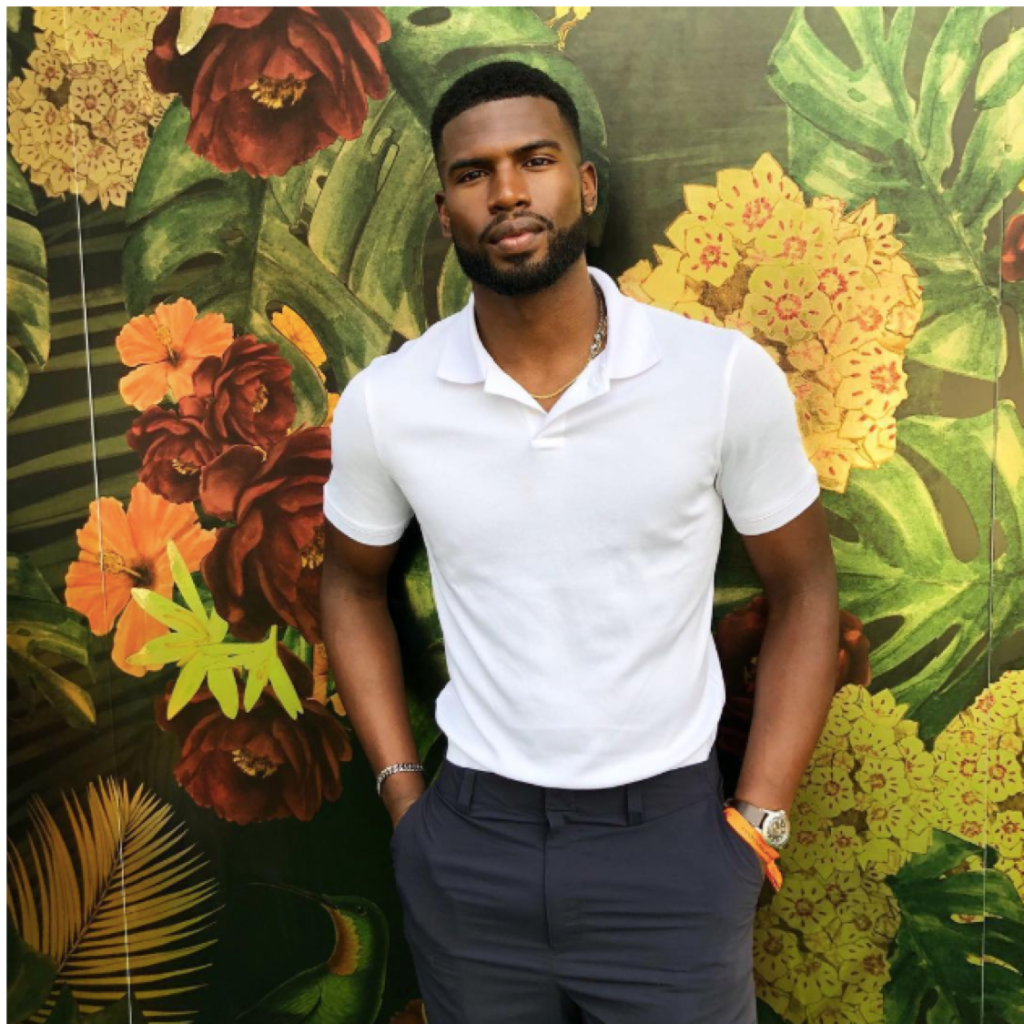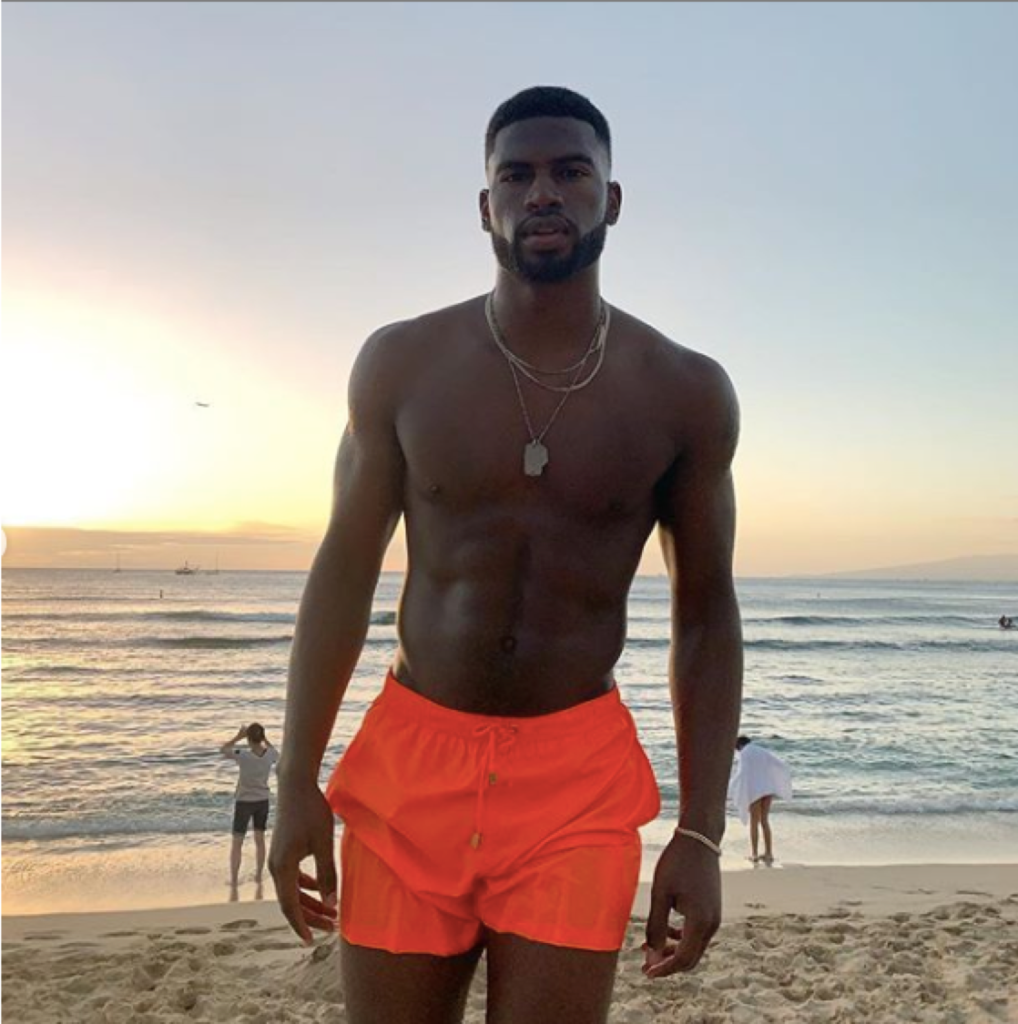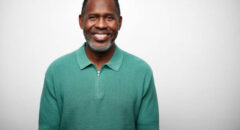
If you swooned over a fine, chocolate model, chances are Broderick Hunter was in the mix. The California native is the son of a Nigerian mother and a Detroit-born father and has been blowing up fashion runways, social media and women’s dreams for years. But this handsome young man is so much more than just eye candy. He is a man on a mission.
At 19, Broderick moved to Miami to pursue a modeling career.
“The thing about it is that I stepped into the industry on a whim,” Hunter tells Teen Vogue. “My basketball career was in a spiral. I was coming off of an injury. I was using whatever I had left in me to play basketball just to get into college. I knew I had to have education. My mom and dad weren’t going to let me go about life without going to college. So, when modeling happened it was a way out, and an opportunity to start something new. My “OK, this is something I can do” moment happened when I was in Italy for the first time. I had booked [a major fashion show]. And I was like “Oh, sh*t, this is my first big deal.” But then six hours before the show, I got released and they replaced me with a white boy. They put my look on someone else.”
“I would go to the grocery store and it was the first time I was legit being followed around,” Hunter recalls. “It could have been happening in my hometown but I wasn’t paying attention to it then. I actually felt like everywhere I turn, I have someone looking at me some type of way, and I thought, Damn, this is what it feels like.”
But it wasn’t all fun and games for Hunter.
“Back then it was an honor to get signed. I went into several different agencies who told me that they already had a black guy. I’ve had people say, ‘Oh, you’re too dark’.” I’ve had numerous agencies tell me that black boys weren’t ‘in.’ Once I finally got signed — it took me six months to get representation — I immediately went [to] the board to find out how many other black boys are on there. There were, like, four. And that was in L.A. Coming to New York, there were maybe five, six guys.”

“When I was in Miami, I was not booking a single thing,” Hunter tells Teen Vogue. I was like one of three black guys that were out there. I was just starting, signed to [a major agency]. I was working three different jobs: bar back, and two different janitor positions. All while trying to book stuff. At that point I had to be out there for a minimum of six months — that was in my contract. So, I figured, you guys aren’t booking me, I’m not going on castings, I have to just make some stuff work. I saved up enough money working my side jobs to say, “OK, I just got signed to [an agency] in Milan and they want me to come out for Milan Fashion Week.” I thought this could be my opportunity to finally break in. Right before that I had booked my GQ Italia spread, the Miami Vice spread. That was a really good thing. It was the only thing I had, but it gave me the confidence. So, it was a few people and things, especially that GQ shoot, that gave me the cosign to pursue this.
Even through all of his experiences, he still has love for Black women and never forgets where he comes from. This is what he posted on social media:

“At the age of 19, if I was to blast on social media, saying “Hey, yo, f*ck [this fashion brand], they replaced me with a white guy,” I probably wouldn’t be here, because I didn’t have the backing behind me to continue my career. I didn’t want to be regarded as the black kid who wasn’t grateful enough for an opportunity and didn’t want to be a good sport about it. The only thing I had to do was just be silent, unfortunately. But that silence fueled me into my next step, which was crashing the DSquared casting. I was like ‘Sh*t man, I got to do something,’ and there were still castings going on. DSquared didn’t even request me. I just crashed the casting, got put on option, then got released, then got called back, and then I got the show and the show led to the Ciara video [for “Sorry.”] But that’s a whole different story.”
“Now I’ve gotten to a point in my career where I can call [racism] out and people will respect that. But that was one of the things I had to do to get to the point where I could be an advocate for talking about certain issues like that. Because I’m sure it’s still happening. No one knew it was happening to me, but if I say it now, other black male models will say ‘That happened to me,’ ‘That happened to me yesterday.'”

“When you’re a black boy in modeling, you have to be the cream of the crop. They’re only signing you if they see the star in you and think you’re definitely going to blow up. A lot of the guys I was going into the industry with were already established, Tyson Beckford included. It was really really difficult to get into the door. Not even getting in. Once you’re in the door, you still have to fight to maximize the limited space you’ve been given. So, yeah, I can get a Marc Jacobs call, but there’s gonna be all those other established black boys there, and on top of that I have to compete with the white boys, which is already hard enough. It’s a double competition and you’re starting at the very bottom of the barrel.”








